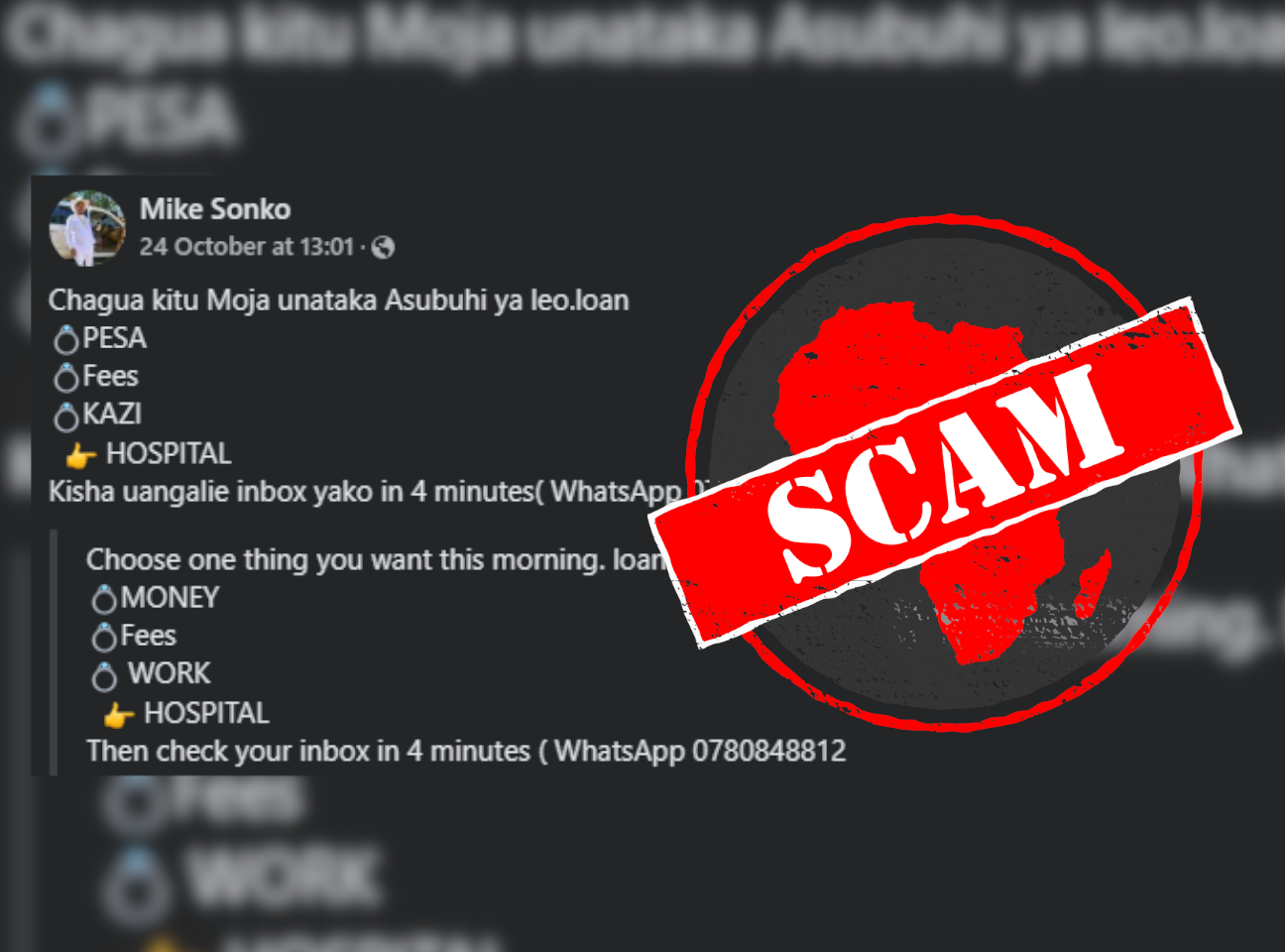IN SHORT: A Facebook account impersonating former Nairobi county governor Mike Sonko is offering loans on Facebook. But the loan offers are a scam and should be ignored.
The Facebook account Mike Sonko would have you believe it’s run by former Nairobi county governor Mike Sonko.
Sonko served as Nairobi county governor between 2017 and 2020.
The account uses his photo as its profile picture. It also asks users to choose between money, school fees or a job in the comments. They are then asked to check their inbox after four minutes.
The account regularly posts on a Facebook group with thousands of members here, here, here, here, here, here, here, here, here, here, here, here, here, here and here.
The posts have attracted interest and multiple inquiries from Facebook users.
Sonko is known for being generous. But is the account and the offers to be trusted? Here’s what we found.

Another fake account and offers
Sonko’s verified Facebook page had over 2.5 million followers before it was suspended in March 2023. This was mentioned by Sonko on his X (formerly Twitter) account and reported in local media.
The suspicious account has only one update, made on 19 October. But it is actively posting on Facebook groups with thousands of members.
If a page or account has little or no activity on its timeline, but has made numerous posts on Facebook groups, this indicates they might be fake and created to scam.
None of the offers have been posted on Sonko’s verified X account with over 2.5 million followers.
We contacted the account for a loan and were asked to pay a registration fee of KSh253. This is a clear sign of a scam.
All signs point to a fake account with deceptive loan offers.
To further protect yourself from Facebook scams, read our guide on how to spot them.
Republish our content for free
For publishers: what to do if your post is rated false
A fact-checker has rated your Facebook or Instagram post as “false”, “altered”, “partly false” or “missing context”. This could have serious consequences. What do you do?
Click on our guide for the steps you should follow.
Publishers guideAfrica Check teams up with Facebook
Africa Check is a partner in Meta's third-party fact-checking programme to help stop the spread of false information on social media.
The content we rate as “false” will be downgraded on Facebook and Instagram. This means fewer people will see it.
You can also help identify false information on Facebook. This guide explains how.




Add new comment